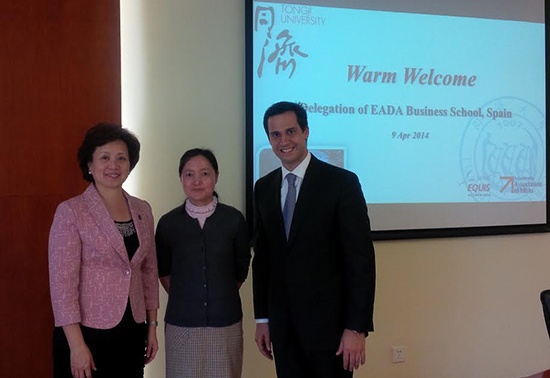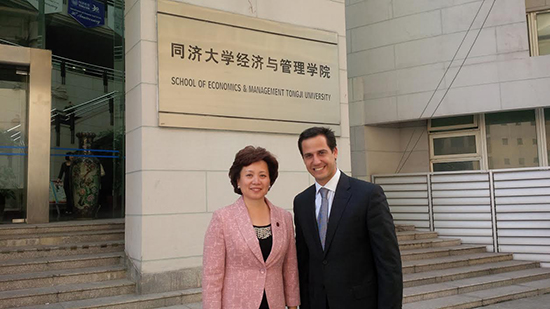New Exchange programme with China
EADA has increased its presence on the Asian continent following the recent agreement with the School of Economics and Management Tongji University of China for a new Exchange programme. It is one of China’s most prestigious universities, which ranks seventh among the country’s Top 10 business schools on the Eduniversal Worldwide Business School Ranking. What’s more, it has obtained EQUIS and AMBA accreditation and its MBA programme has received recognition from the prestigious Forbes magazine.

From left to right, Margaret Chen, member of the EADA International Advisory Board, Haiyan Wang, director of International Relations at Tongji University and Jordi Díaz, EADA Programmes director.
This collaboration agreement is the fifth to have been signed in Asia with prestigious international schools such as the Indian Institute of Management Bangalore (IIMB) –in Bangalore, India–, Nagoya University (NUCB) –in Nagoya, Japan–, National Chengchi University College of Commerce (NCCU) –in Taipei, Taiwan– and the Asian Institute of Technology (AIT) –in Pathumthani, Thailand–.
EADA, present on 5 continents
Jordi Díaz, the EADA Programmes director travelled to Shanghai to formalise the agreement along with Margaret Chen, member of the EADA International Advisory Board and president of China Club Spain –a private non-profit association which helps Chinese professionals to further their careers in Spain-. According to Díaz “the Tongji University agreement bears testimony to the international interest shown in EADA’s master programmes by prestigious institutions, which value aspects such as the quality of the training we provide and our commitment to the future career progression of our participants”.

Jordi Díaz and Margaret Chen in front of Tongji University.
EADA currently runs exchange programmes with 29 schools on five continents. These programmes enable EADA master and MBA students to study three to six months in a prestigious international school. The aim is for participants to acquire a more comprehensive international outlook by studying in another country. This also involves new challenges such as making new contacts increasing one’s career prospects and taking part in joint research undertaken by the two institutions.
